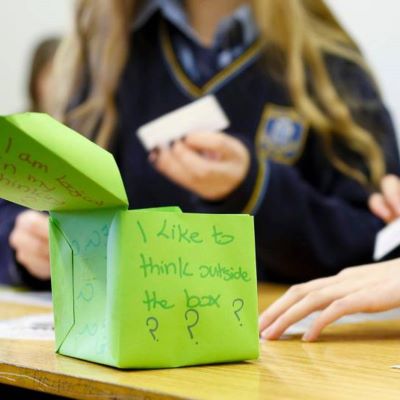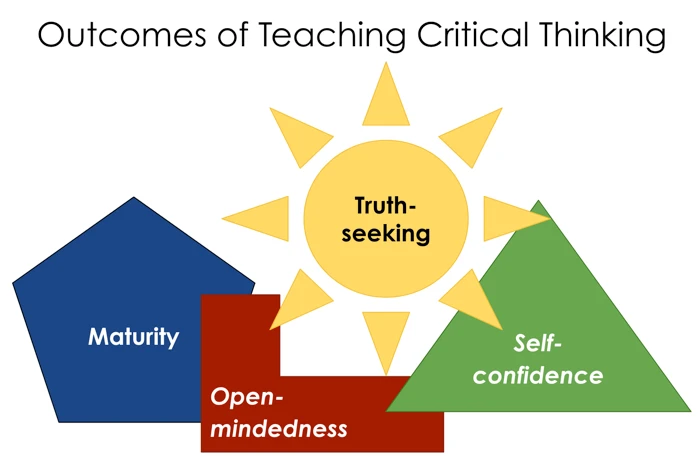Learn more about 21st Century Skills Methodology Programmes and start dates at our centres
Enhancing English Language Learning Through Critical Thinking in an English Language Classroom in Ireland

In today’s fast-paced world, learning English goes beyond simply acquiring language skills; it also involves developing critical and creative thinking abilities, as well as other 21st-century competencies. In 2017 Emerald was proud to introduce an exciting new element to our language programmes at B1 level and above – the chance to learn English and develop and master 21st century skills in the same class. We called this Integrated Language Learning. Using the key life skills identified by the World Economic Forum, we introduced new material directly into our General English Programme.
In this blog you will find some strategies on how to integrate important 21st-century skills into the English language classroom
Our 21st-century skills modules include lessons on Creativity, Critical Thinking, Leadership and many other topics. We also practise Problem Solving, Lateral Thinking and Effective Group Work. All these workshops were written by senior Emerald teachers.
Based on Content and Language Integrated Learning (CLIL), our approach is supported by more than 25 years of academic research that says this type of integration is a powerful and effective way to help learners master a second language. We believe this is the best option for our students from B1 to C1 to master English and prepare themselves for a world of incredible opportunities and great changes.
For example, in our Career Development workshop, our students explore strategies to develop a long-term career plan while also practising two crucial skills; analytical thinking and long-term goal setting, two important skills in the 21st-century workplace. In the module on unconscious bias, students will examine what this is and how it impacts on our decision making. Once students are aware of what unconscious bias is, they can also reduce the likelihood of it by looking at different approaches to recognising and overcoming bias.

In other workshops, such as Critical Thinking, they look directly at other key Critical and Creative Thinking skills. Ireland, the land of saints and scholars, has always had a rich literary tradition and a culture where communication is central. This is the perfect environment for encouraging students to think critically about language use, literature and culture.
We have also developed programmes specifically for closed groups and Young Adults to help develop 21st-century skills. There are many types of activity that actively help students to develop core 21st century skills that they can carry with them to their places of work or further study. Here are some suggestions on topics and how they might work:
Analyzing Texts
Whether it’s a classic work of Irish literature or a contemporary piece, encourage students to delve beneath the surface. Ask probing questions that prompt them to examine themes, characters’ motivations, and the author’s purpose. Encourage discussions that challenge assumptions and encourage diverse perspectives.
Debate and Discussion
Organize debates or group discussions on relevant topics, such as current events, cultural practices, or ethical dilemmas. Encourage students to articulate their opinions coherently, support their arguments with evidence, and respectfully engage with opposing viewpoints. This fosters linguistic fluency, critical thinking, and effective communication skills.
Project-Based Learning
Teachers can work together to design projects that require students to research, analyse and present information in English on a variety of topics such as Environmental Practices in Ireland, Castles in Ireland, Irish Film and Media etc.. This encourages creativity in project-design and helps to develop presentation skills.
Collaborative Learning
By means of group discussions, debates and shared projects, students develop communication skills, teamwork and the ability to consider multiple perspectives. Participants then share their findings with peers and give feedback to each other. The ability to provide feedback in a constructive and respectful manner is an important skill.
Media Literacy
By analysing advertisements, news articles and online content, students learn how to critically evaluate sources, detect bias and understand how language is used to persuade and manipulate. They can look at news stories as presented from different perspectives and see how a reader might be persuaded to take a particular view. Students also examine how effective use of digital tools for language learning can lead to improved skills in online research, digital story-telling and presentations. This is so important in the times we live in.
Task-Based Learning
Problem-solving tasks that require students to apply their language skills in real-life situations is a key feature of creative and critical thinking. This helps to develop analytical thinking and decision-making capacity. We have found creating our own modules helps put learning in context.
Global Citizenship
Students explore global issues and perspectives through English. Topics such as sustainability, human rights and cultural diversity help to foster empathy and understanding.
Creativity Exercises
Teachers can choose to incorporate creative writing, story-telling activities, drama and improvisation exercises into their English lessons. This encourages students to think imaginatively and express themselves in different ways.
In all the above it is important to integrate reflective practice, where students have the opportunity to reflect on their learning process, set goals and assess their own progress. This promotes self-directed learning skills leading to greater learner autonomy.
The outcomes
Whether it is a mix of our own in-house modules or internationally available material, what we hope to see are the benefits of integrating Critical Thinking into our teaching. The advantages of such a system would be:
Enhanced Language Proficiency
By engaging in critical analysis and discussion, students develop a deeper understanding of language structures, vocabulary usage, and presentation of ideas.
Empowered Learners
Critical thinking equips students with the skills to question, evaluate, and construct arguments effectively, creating more independent learners.
Cultural Sensitivity
By exploring different perspectives and cultural contexts, students will get a deeper appreciation for linguistic and cultural diversity. Also it encourages empathy, something that is so valuable when engaging with others.
Real-world Relevance
The ability to think critically is indispensable in working your way through the complexities of everyday life.
Conclusion
By bringing different ideas and strategies into the English-language classroom, educators can help students not only master the English language but also develop the essential 21st-century skills of creativity, effective communication, collaboration and pair work, digital literacy and skills of moderation and negotiation. These are all essential for success in today’s fast-paced and interconnected world. For teachers of other subjects, who need to use English as part of a school-wide adoption of CLIL, strategies to develop students’ 21st-century skills will enhance students’ learning in other subjects as well as their competency in English – a win for everyone.
Author: Carl Byrne, Director of Studies, Emerald Cultural Institute, Dublin
